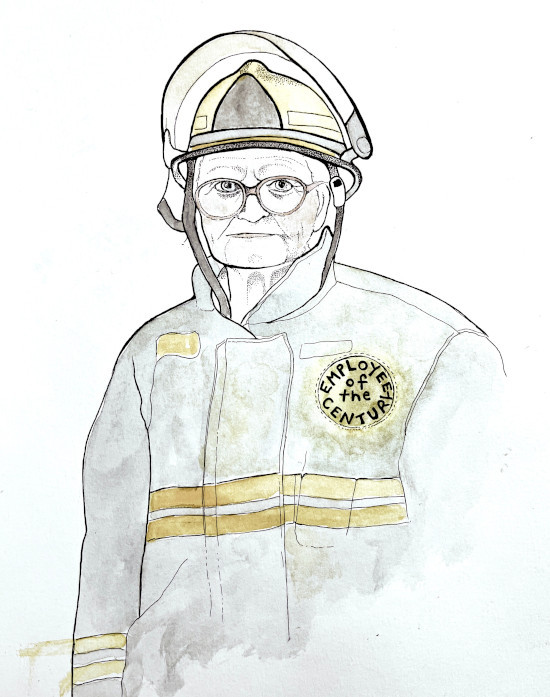The spectre of stagnation
Our old economy is a reflection of ourselves

Illustration by Gabrielle Funk
Across several countries, the subject of retirement has come front and centre in political discussions. Last year, for instance, French President Emmanuel Macron introduced a law raising the retirement age from 62 to 64. As the French so often do, the public met the law with widespread protest.
In the midst of the ongoing United States presidential campaigns, Republican candidate Nikki Haley suggested that the current retirement age of 65 “is way too low.”
This rhetoric is part of a trend facing many developed economies. As the median age has skyrocketed above 40, nations are facing growing concerns with how to accommodate an aging population.
Canada is not exempt from this concern. According to a recent survey by the National Institute on Ageing (NIA), one in four Canadians over the age of 50 say their income is inadequate for retirement.
The looming concern that many individuals have regarding their ability to retire, or lack thereof, has prompted many older Canadians to reconsider their approach.
For instance, according to the same survey by the NIA, 50 per cent of those who are 80 and older who continue to work “are doing so out of necessity rather than choice.” This issue is a symptom of something much deeper. That is, our economy has retired before we can.
In an article, two economists at the Business Council of British Columbia suggest that Canada’s economic performance has been among the lowest of 38 OECD (Organisation for Economic Co-operation and Development) member nations, with real GDP per capita having fallen by $1,200 since 2019.
Moreover, the duo further state that “Canada will be the worst-performing advanced economy over both 2020-30 and 2030-60, with the lowest growth in real GDP per capita.”
The Old Age Security payments pensioners receive comes from Canada’s national income. In 2020, these payments totalled $46.3 billion. By 2035, that number is expected to increase to $94.3 billion.
As the median age increases, and consequently the share of pensioners in the country, the total share of national income going to pensioners must also increase. But what happens when the economy fails to meet the needs of retirees?
Some countries like France and the United States have signaled austerity measures, looking to cut spending and increase taxes. On the other hand, countries like Japan and China, which are facing what is arguably a much worse demographic crisis, have turned to automation to meet their needs.
Dr. James Townsend, a professor of economics at the University of Winnipeg, says that one possibility to consider is expanding work-from-home opportunities, which would allow more time to care for family members in need.
Yet despite our relative underperformance, Canadians still trail the United States when it comes to adopting new technologies to
help grow the economy and support an aging population. Could our unwillingness to adapt be a signal of our old age? When faced with stagnation, only youthful dynamism can save us.
Gabriel Louër is a volunteer contributor for The Uniter. He serves as emerging leaders director for the UWSA.
Published in Volume 78, Number 18 of The Uniter (February 15, 2024)






